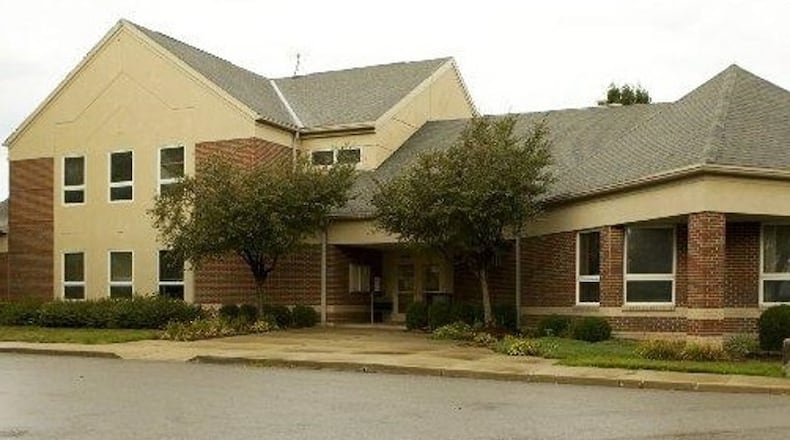Held asked Huber Heights City Council to lease the building to the nonprofit at the work session and council will vote on entering into a lease at Monday’s meeting.
“We’re passionate about growing food that is as healthy and nutritious and possible and it will be going to the people who need it most,” Held said.
H2Grow would grow produce to go to nonprofits in the community in an aquaponics farm, Held said. An aquaponics farm is a system where fish and plants are grown together. The plants are grown on top of the fish tanks.
An aquaponics farm is more efficient and self-sustaining, Held said.
The fish create ammonia in the water, the ammonia is converted into nutrients used by the plants to grow and the plants purify the water for the fish. Held plans to use koi as the fish for this system.
Held wants to sell leafy greens and other produce directly to the Dayton Food Bank and Homefull, so there would be no middle-man in the process. Held also talked about partnerships with nearby school districts.
“There would be no transportation cost, no logistics that have to get figured out. The produce would go from the farm to the wholesaler in one stop,” Held said.
MORE: Tequila bottle shatters minivan window, rattles Huber Heights family
In Montgomery County, there are about 90,000 people who are food insecure, many of them children.
Mayor Jeff Gore, who works as an intervention specialist, said he sees food issues Huber Heights has in the schools everyday.
“We serve breakfast and lunch for the kids, but it’s like a Poptart or something, not really breakfast,” Gore said. “This is something that we could put in the schools that would be a partnership between the city and a nonprofit.”
Aquaponics is more efficient for an urban area, Held said. 1,800 square-feet of growing space with aquaponics yields as much crops as 1 acre of traditional farming does.
Plants can grow year-round in that kind of environment. Plants grow faster in an aquaponic farm than in soil. Aquaponic farming uses about 5% of the water that conventional farming does.
“This makes it absolutely perfect for urban farming,” Held said.
Held said the farm will be self-sustaining in terms of funding after equipment is up and running. H2Grow will sell the produce it makes to “keep the lights on” and any other costs will be covered by grants or donations.
Held estimates H2Grow will be able to produce 450 to 550 pounds of fish annually, 30,000 heads of leafy greens a year, 30 trays of microgreens weekly and 540 pounds of tomatoes seasonally.
On a yearly basis, Held estimated he could sell that amount of produce for about $90,000 a year to a wholesalers.
Held said, if the city approves the lease, he hopes to be fully operatioal by the end of 2020.
MORE: 20-acre site in Huber Heights targeted for redevelopment
Huber Heights City Manager Rob Schommer called the project “revolutionary.”
“A lot of people have ideas and come to the city wanting to do partnerships, but this wasn’t a hands out ‘hey, if you give me this, I’ll give you that,’” Schommer said. “He’s doing this and this is our opportunity to partner with him.”
The city will also look into giving H2Grow a grant for purchasing the necessary equipment, Schommer said.
“For the level of impact it could have, I think it’s an investment that’s well worth it,” Held said. “I’m eager to get growing.”
About the Author

